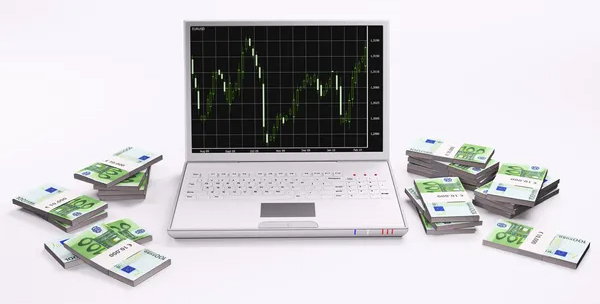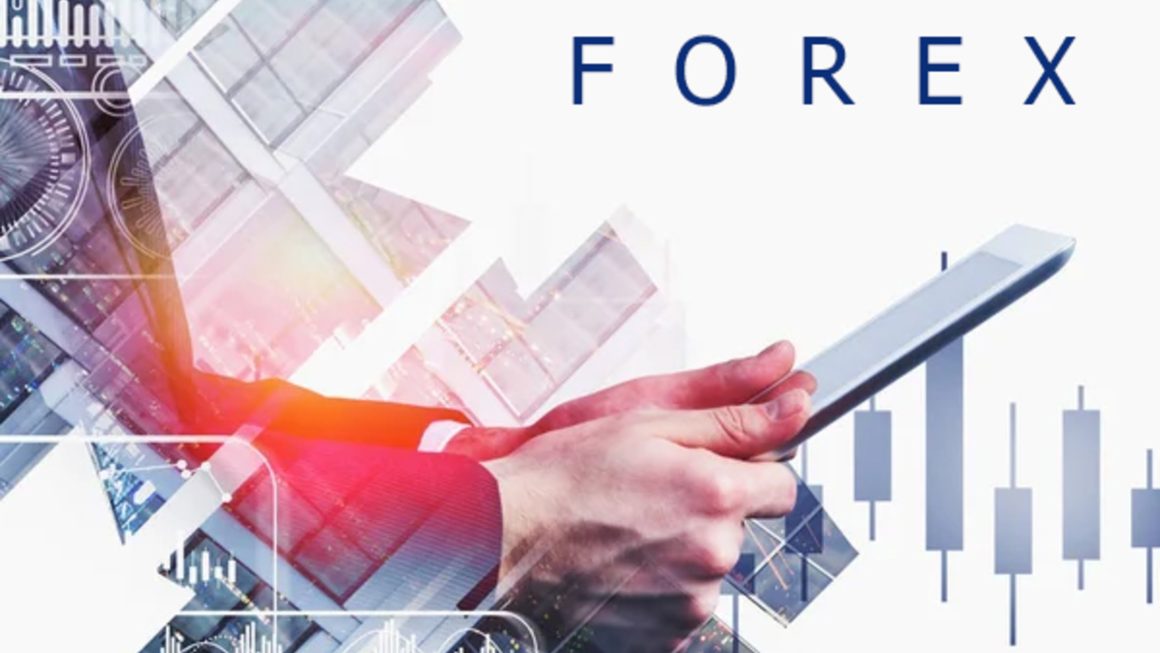Forex trading, or foreign exchange trading, is an intriguing financial market where global currencies are bought and sold. While it offers opportunities for profit, it also presents significant risks that make it unsuitable for everyone. This article delves into the intricacies of forex trading, highlighting the associated risks under various themes.
Understanding Forex: A Volatile Market
Forex is renowned for its high volatility, which can be both an opportunity and a peril. Market fluctuations are influenced by numerous factors, including economic data releases, geopolitical events, and market speculation. These sudden shifts can lead to rapid changes in currency values, providing opportunities for quick profits but also potential for significant losses.
Unlike stock markets, forex does not have a centralized exchange, leading to a less regulated environment with varying degrees of transparency. This decentralized nature can make it challenging for traders, especially novices, to access reliable information and execute trades effectively.
Volatility can be exacerbated by market behavior during peak trading hours, as well as the influence of high-frequency trading algorithms. Traders must be prepared to face unexpected swings, which can occur within minutes or even seconds.
Shifts in currency pair values can impact traders who have not adequately assessed or hedged their positions, leading to substantial financial loss.
The global nature of forex means that market dynamics can shift rapidly as events unfold across different time zones, adding another layer of complexity for traders who must remain vigilant 24/7.
Understanding the volatility of forex is crucial before entering the market. Traders should employ risk management strategies, such as stop-loss orders, to mitigate potential losses.
Leverage: A Double-Edged Sword
Leverage is one of the most attractive yet dangerous aspects of forex trading. It allows traders to control larger positions with a smaller amount of capital, which can amplify both gains and losses.
For example, a leverage ratio of 50:1 means that for every $1,000 in the trader’s account, they can trade up to $50,000. While this can significantly increase potential profits, it also magnifies potential losses.
Many traders are lured by the prospect of high returns on small capital investments. However, the misuse of leverage is a common pitfall that can lead to devastating losses, sometimes even exceeding the initial investment.
Leverage requires disciplined risk management. Traders must maintain sufficient margin levels to avoid margin calls and the automatic closure of positions by brokers.
It’s important to compare leverage usage between forex and other forms of trading. For instance, stock trading typically offers lower leverage, reducing the risk of substantial loss.
Leverage Comparison Table
| Trading Type | Typical Leverage | Risk Level |
|---|---|---|
| Forex | Up to 500:1 | High |
| Stocks | Up to 2:1 | Moderate |
| Futures | Up to 20:1 | High |
Traders should educate themselves about leverage and use it judiciously, setting clear limits and closely monitoring their trading activities.
Emotional Challenges: Fear and Greed

Trading in forex can be an emotional rollercoaster. Fear and greed are two of the most powerful emotions that traders experience, often leading to irrational decisions and impulsive trading.
Fear can cause traders to close positions prematurely, missing out on potential profits. Conversely, greed can drive traders to overextend their positions, increasing the risk of significant losses.
Emotional stability is crucial in forex trading. Traders should develop a well-defined trading plan and stick to it, regardless of emotional impulses that may arise during trading sessions.
It’s essential to recognize the signs of emotional trading, such as revenge trading after a loss or taking excessive risks after a win. Implementing a disciplined approach can help mitigate these tendencies.
Developing strategies to manage stress and maintain focus, such as taking breaks and practicing mindfulness, can improve decision-making and trading outcomes.
Traders can also benefit from maintaining a trading journal to reflect on their decisions and emotional responses, helping them learn and improve over time.
Regulatory Risks and Fraudulent Brokers
The forex market’s global and decentralized nature creates regulatory challenges, resulting in varying levels of legal oversight across countries. Traders need to navigate these differences to ensure they operate within a safe and compliant environment.
Fraudulent brokers and scams are prevalent in the forex market, luring unsuspecting traders with promises of high returns and low risk. It’s crucial for traders to conduct thorough research before selecting a broker, ensuring they are regulated by reputable authorities.
Regulation varies widely. In the United States, for example, bodies like the Commodity Futures Trading Commission (CFTC) and the National Futures Association (NFA) provide stringent oversight. In contrast, some jurisdictions may have lax regulatory frameworks.
Traders can protect themselves by verifying a broker’s registration and regulatory status with relevant authorities. Reputable brokers often provide transparency in their operations and have a track record of fair trading practices.
Understanding the costs associated with trading, such as spreads, commissions, and overnight fees, is also crucial in avoiding unexpected financial surprises.
Informed traders should stay updated on regulatory changes and be aware of potential scams, continuously seeking to educate themselves about the evolving market landscape.
The Impact of Economic Events on Forex
Forex markets are highly sensitive to economic events. Announcements such as interest rate decisions, employment reports, and GDP data releases can lead to immediate and pronounced market reactions.
For instance, a central bank’s decision to raise interest rates can strengthen its currency, as higher rates attract foreign investment. Conversely, a decrease in rates may weaken the currency.
Traders must stay informed about economic calendars and be aware of key events that can influence currency markets. This awareness allows traders to anticipate potential market movements and adjust their strategies accordingly.
Political events and geopolitical tensions also play a significant role in forex markets. Elections, trade negotiations, and conflicts can lead to increased volatility and uncertainty.
Traders should adopt strategies that incorporate fundamental analysis, enabling them to assess the potential impact of economic and political events on currency pairs.
Being proactive and well-informed can significantly enhance a trader’s ability to navigate the complexities of the forex market, turning potential risks into opportunities.
Education and Experience: Essential Tools
Education and experience are vital for success in forex trading. The complexity and risk associated with forex require traders to have a solid understanding of market dynamics, trading strategies, and risk management principles.
Novice traders should invest time in learning about forex through courses, webinars, and reading materials. Understanding technical analysis, chart patterns, and indicators can aid in making informed trading decisions.
Practice accounts offered by many brokers provide a risk-free environment for traders to hone their skills and test strategies without financial consequences.
Experienced traders often emphasize the importance of continuous learning, as the forex market is constantly evolving. Staying updated with the latest market trends and developments is crucial for maintaining a competitive edge.
Mentorship and networking with other traders can provide valuable insights and guidance, helping traders navigate the challenges of forex trading.
Ultimately, a commitment to education and experience-building can help traders mitigate risks and enhance their chances of achieving long-term success in the forex market.
FAQ: Key Questions on Forex Trading Risks
Q1: What makes forex trading risky compared to other forms of trading?
A1: Forex trading is highly volatile, lacks a centralized exchange, and is often conducted with high leverage, increasing the potential for significant losses.
Q2: How does leverage amplify risks in forex trading?
A2: Leverage allows traders to control large positions with small capital, magnifying both potential gains and losses, often leading to substantial financial risk.
Q3: What are common emotional pitfalls that traders face in forex?
A3: Fear and greed are common emotions that can lead to irrational decisions, such as closing positions too early or overextending trades.
Q4: How can traders protect themselves from fraudulent brokers?
A4: Traders should research brokers thoroughly, ensuring they are regulated by reputable authorities and have transparent operations.
Q5: Why is it important to consider economic events in forex trading?
A5: Economic events can cause immediate and significant currency fluctuations, impacting trading decisions and outcomes.
Q6: How can education and experience mitigate forex trading risks?
A6: Education provides the necessary knowledge of market dynamics and trading strategies, while experience helps traders develop intuition and discipline to manage risks effectively.


Leverage always sounded tempting to me but understanding it better now, I see it’s not just about the potential profits. The risk of loss is something I’ll have to consider more seriously.
The emotional aspect of forex trading is often underestimated. It’s good that the article addresses fear and greed as they’re definitely factors that have affected my trading decisions before.
This article was really insightful, especially the part about the importance of risk management strategies in forex trading. It’s a good reminder that setting stop-loss orders can save traders from huge losses.
Great read! The comparison table for leverage across different types of trading was particularly useful for a newbie like me. Helps put things into perspective.
I never knew how much economic events could affect forex markets. This article really highlighted the need to stay informed about global economic news when trading currencies.
‘Regulatory Risks and Fraudulent Brokers’ section was an eye-opener. Doing thorough research on brokers seems like a crucial step before diving into forex.
I’ve been curious about forex, but after reading this, I see it requires a level of vigilance I might not be ready for. Thanks for outlining what it takes to be successful in such a clear manner.
The bit about political events influencing the markets was interesting; reminds traders that they need to look beyond just numbers and charts.
I appreciate how this post emphasizes the continuous learning aspect of forex trading. The market evolves so quickly; staying updated is clearly crucial.